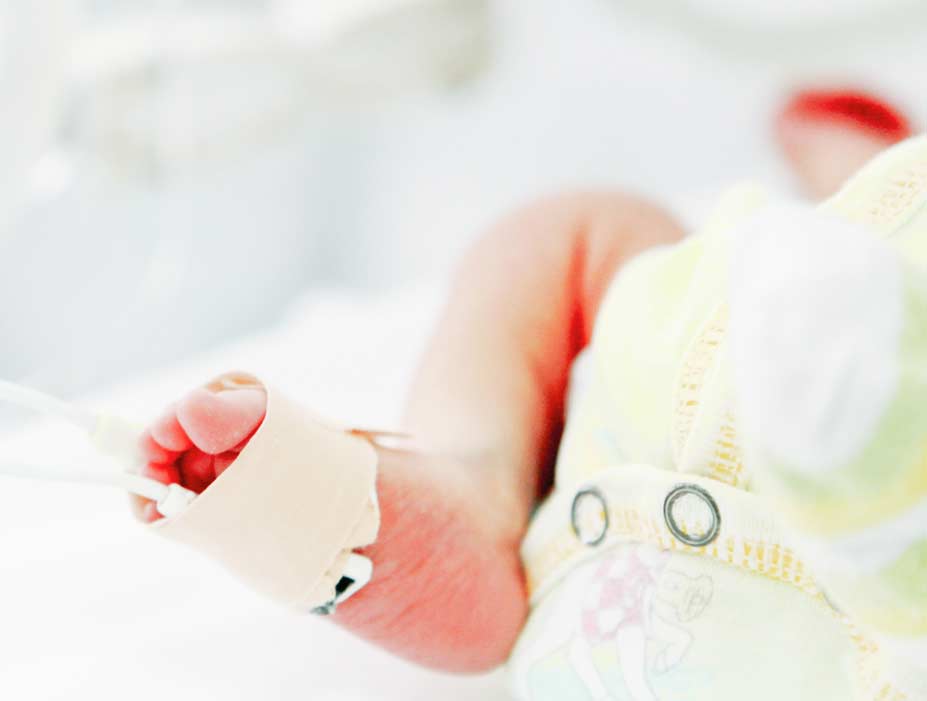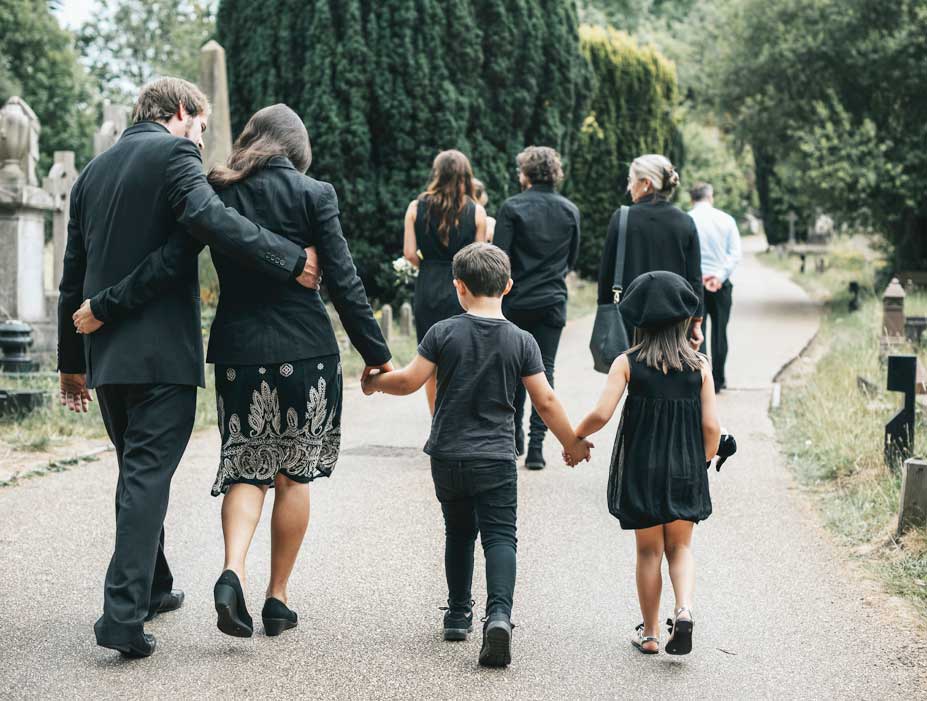Stillbirth/Neonatal Death Stories
OK & AD v The Health Service Executive
Rachael Liston represented the parents of Baby Mary-Kate Kelly who was stillborn on Tuesday 28th May 2013 in St Munchin’s Hospital, Limerick.
At 34 weeks Gestation, Baby Mary Kate’s mother, Ms Delahunt presented to Portlaoise Hospital on the 21st May 2013 concerned about reduced foetal movements. A CTG was undertaken to monitor Baby Mary Kate’s heartbeat.

It was noted that there were unprovoked decelerations and no accelerations, however Ms Delahunt was informed that she could be discharged from Portlaoise Hospital and could attend her previously arranged appointment in St Munchin’s Hospital in Limerick the following day.
When Ms Delahunt expressed further concern about her baby, she was advised that she should attend St Munchin’s Hospital if she did not feel any movement from the foetus in the next 12 hours.
Reassured, Ms Delahunt noted small foetal movement that evening. On Wednesday, 22nd May, Ms Delahunt attended St Munchin’s Hospital with her partner, Mr Kelly, where she advised the nurse that she had not felt any movement from her baby since the evening before. She was scanned immediately and was told that no heartbeat could be detected. Tragically, Baby Mary Kate Kelly had died.
Subsequently, Ms Delahunt and Mr Kelly attended a meeting with the representatives of Portlaoise Hospital. A consultant from the hospital advised them that upon reviewing the records, the CTG tracings were concerning and had she been in charge that day she would have admitted Ms Delahunt for immediate delivery of Baby Mary Kate. Further, the consultant obstetrician reassured them that this was a unique occurrence in the maternity department of Portlaoise Hospital.
In January 2014, a PrimeTime investigates programme revealed concerning details relating to baby deaths in Portlaoise Hospital. After a series of phone calls, Ms Delahunt and Mr Kelly found out that the circumstances surrounding the death of Baby Mary Kate was being investigated by the HSE. All baby deaths had common issues, including a misinterpretation of CTG traces and a failure to escalate matters to consultant level.
Rachael Liston investigated the standard of care afforded to Ms Delahunt and obtained expert evidence which confirmed that the management of her presentation at Portlaoise Hospital was substandard in circumstances where the CTG traces on the day showed significant hypoxic stress. Our Expert noted that although the baseline rate was maintained there was no acceleration to confirm fetal wellbeing. In addition, there was reduced fetal movement and a failure on the part of the midwife to escalate the matter to a senior midwife or a Consultant once she suspected there was an issue with the CTG traces.
Following significant investigation to ascertain the facts surrounding the death of Baby Mary Kate Kelly, we represented the family at an inquest into her death. A verdict of medical misadventure was returned by the Coroner and the jury delivered several recommendations for the HSE to adopt.

Settlement Achieved following investigations into the standard of care during labour in Portiuncula Hospital
That night she started bleeding. She reported this bleeding and was ushered into the delivery room. Midwives in charge of her care struggled to find a heartbeat and told her that her baby had died. Baby Asha was subsequently delivered stillborn by c-section. The Plaintiff was advised that her baby had died because of placental abruption caused by a blood clot.
In 2010, the Plaintiff was expecting another baby. She presented to Portiuncula Hospital with painful contractions. Baby Amber was delivered by emergency c-section and was transferred to the National Maternity Hospital for cooling treatment. The Plaintiffs were subsequently advised that their daughter had suffered a severe brain injury and that she would not survive. Sadly, baby Amber died some days later.
Following investigations into baby deaths at Portlaoise Hospital, the Plaintiffs became aware of the possibility that baby Asha and baby Amber may have died because of negligence.
They instructed Rachael Liston to investigate the circumstances surrounding their daughters’ deaths.
Expert evidence obtained confirmed that there was substandard care. With regards to baby Asha, the expert obstetrician stated that there were strong symptoms of placental abruption which were ignored. The response of the clinical staff to her history, symptoms, clinical signs and CTG changes were inadequate and contributed to the death of baby Asha.
Regarding Baby Amber, expert evidence obtained stated that the standard of care afforded to the Plaintiff during the birth of her child was grossly substandard. There was a lack of appropriate CTG monitoring considering the Plaintiff’s previous cesarean section delivery and there was a failure to respond to concerning and worsening changes.
Had the medical team acted appropriately, on the balance of probabilities, both baby Asha and baby Amber, would have both been alive.
As a result of discovery documentation obtained it became apparent that the hospital had investigated the death of baby Amber following her death and produced a draft report in relation to it. However, they had failed to inform baby Amber’s parents of this. As a result of the hospital’s action, we sought aggravated damages.
An inquest also took place into the death of baby Amber and the Coroner recorded a verdict of medical misadventure.
A substantial settlement was achieved relating to the civil action, which included legal fees and inquest costs.
A review took place into maternity services at Portiuncula Hospital. This external independent Clinical Review was commissioned by the Chief Clinical Director of Saolta in January 2015 following a concern that a higher than average number of babies from Portiuncula Hospital in Ballinasloe (PUH) had been referred for Therapeutic Hypothermia following their birth. The review investigated 18 cases and also included a general review of maternity services at PUH between the years 2008-2014.
A report, entitled ‘External Independent Clinical Review of the Maternity Services at Portiuncula Hospital, Ballinasloe (PUH) and of 18 perinatal events which occurred between March 2008 and November 2014’, was published on the 3rd May 2018.
The Clinical Review Team state in the report that the Hospital and the HSE acknowledge that the families’ experiences were, in some cases, devastating, and that these events have had a profound and lasting impact on the families. The incidents described in the report have been highlighted in previous reports in other hospitals in Ireland, to include Portloaise Hospital in 2014 and the report acknowledges that, without fundamental changes in process and training, the problems that arose in Portiuncula Hospital will happen again. The review acknowledges that a shortage in staff numbers, limited access to training and limited availability of resources impacted upon the ability of Portiuncula Hospital to keep up to date with some of the latest developments and skills and techniques in clinical care. The escalation of care to more senior colleagues did not always occur in a timely fashion due to a lack of local escalation guidelines and shortage of consultant staff.
The review highlighted the following clinical key points:
It refers to the fact that there is a need in the hospital to implement open disclosure, and that all staff are to be made aware of and comply with the HSE Open Disclosure Policy. The report notes that of the 18 cases reviewed, 17 of those cases were identified as being cases where open disclosure was deemed unsatisfactory.
In relation to staffing, the review refers to a chronic shortage of staff both at midwifery and consultant level, with the lack of consistent midwifery management presence to supervise the labour ward during the period under review. It also comments on the fact that there was no support if things went wrong.
There is significant reference to a lack of training within the review, and it states that the records of the mandatory training shown to the Clinical Review Team, revealed that some staff had little or no record training.
Find out more on the matter in the links below, to include an interview (commencing approximately 22mins into the news) on RTE’s Six One news involving Rachael Liston, solicitor in our medical negligence team, who represented two of the sixteen families referred to in the report. ·
https://www.rte.ie/news/health/2018/0503/960092-portiuncula-university-hospital/
https://www.rte.ie/player/ie/show/rte-news-six-one-30003249/10874279/
Client Stories
Stillbirth/Neonatal Death Story
Sepsis Claims Story
The Plaintiff was referred to a gynaecologist to have a Posterior Repair Fixation and Mesh Procedure. The purpose of that procedure was to deal with a vault prolapse, from which the Plaintiff was suffering. Following the procedure, the Plaintiff developed complications and became unwell. Anti-biotic therapy was commenced, and the Plaintiff was discharged home but she continued to suffer from significant symptoms. She was readmitted to hospital suffering from severe sepsis and septic shock.
Tear Claims Story
Substantial Settlement Achieved for Plaintiff who Suffered from Sepsis and Undiagnosed Third-Degree Tear Following Delivery. The Plaintiff in this matter attended a regional maternity hospital for antenatal care when she became pregnant with her second child. The Plaintiff delivered a healthy baby by way of an assisted delivery and an episiotomy.
Cancer Misdiagnosis Claims Story
Ms Alison McCormack, the Plaintiff in this case, sought compensation for personal injuries caused as a result of the failure of St James’s Hospital to properly interpret and diagnose the fact that she was suffering from invasive ductal carcinoma when she underwent testing in September, 2010.
Fatal Claims Story
Marian Tracy was advised by her doctor to undergo a thyroidectomy. She attended at St. James’s Hospital where her anticoagulation medication was changed from Rivaroxaban to Heparin and she was deemed fit for surgery. On the 14th May 2015 she underwent a total thyroidectomy and the post-operative advice given was to monitor the patient for haematoma.
Inquests Story
Medical Misadventure Verdict in the Inquest into the Death of Baby Darragh Butler at the Coombe Hospital. We represented the parents of Baby Darragh Butler, Deceased at the inquest into his death. The Coroner ruled that he died as a result of medical misadventure.
Surgical Injury Claims Story
Settlement Achieved for Plaintiff who suffers a left above-knee leg amputation as a result of negligence during surgery.
